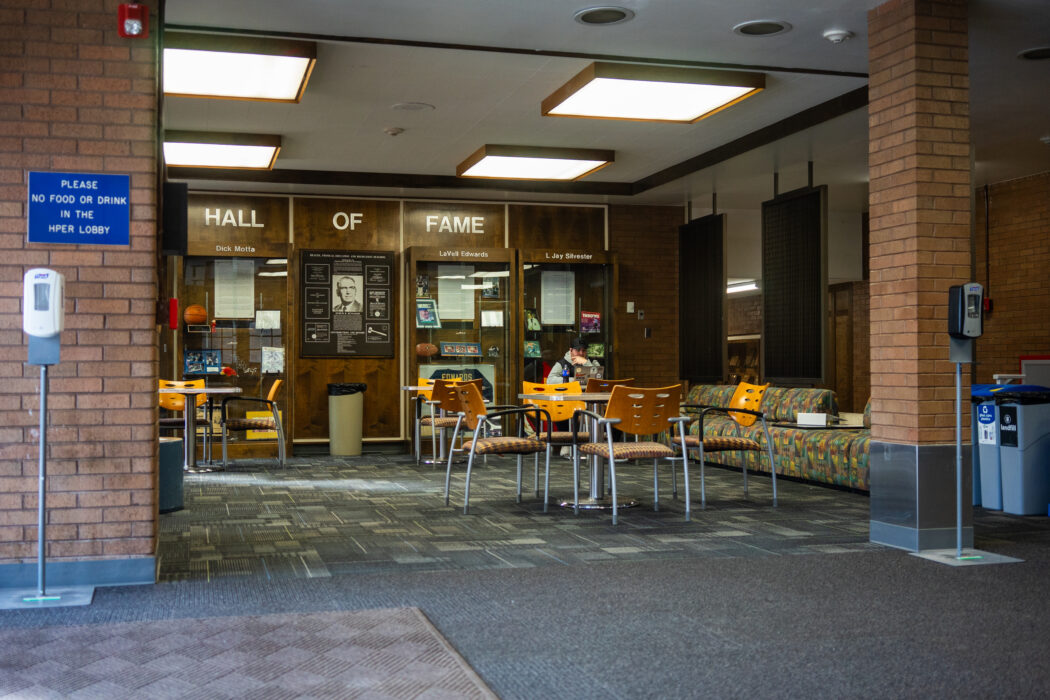Committee approves facilities enhancement requests
On Feb. 12, Utah State University’s Facilities Enhancement Committee, made up of members of the Academic Senate with executive vice president Aly Cinq-Mars as chair, met to discuss how to fund all the requests made with the allotted $200,000 budget.
The facilities enhancement requests were open for the entire month of January for students, faculty and staff. Anyone could request to enhance any facility on campus that they see fit. With a total of 14 requests, all for the Logan campus, three requests stood out among the rest.
HPER Lounge
The HPER lounge is used by 7,000 students spanning all nine colleges annually. The furniture has not been updated since the early 2000s. This request was made by one of USU’s associate deans and will decidedly be fulfilled using the facilities enhancement budget.
“We want to redo the furniture in there because it hasn’t been updated since the early 2000s And a lot of it is scuffed up and so we want to replace it with new furniture that is coated in a certain fabric that is easy to wipe down so that it will hopefully last a little bit longer than the last furniture,” said Chloe Richmond, senator for Emma Eccles Jones College of Education and Human Services. The HPER is located next to the ARC. It is not only used for academics across all nine colleges but also by Campus Recreation for group fitness classes such as stand-up paddleboard yoga, as well as for events such as cardboard boat racing. The lounge is frequented by students attending these activities as well.
Baby Changing Stations in Bathrooms
Sponsored by the College of Science senator Jaxton Winder, this request seeks to add baby changing stations to specifically men’s bathrooms on campus. This is to aid student-parents as they attend USU.
“I was actually on a road trip and ended up in a bathroom and noticed that they had baby changing stalls that were very clearly marked. It just kind of popped in my head; I don’t think I’ve really seen any baby-changing stations in the men’s bathrooms at Utah State. I came back and looked at a few of the bathrooms I was in and was shocked to see how few there actually were,” Winder said.
The baby changing stations request can only be funded for what is known as ENG-buildings, or any buildings with a classroom in them. This is referred to as ENG-funds which come from the state and tuition.
With this request, there are plans to increase signage for baby changing stations as well as make them marked on USU’s digital map which can be found at maps.usu.edu.
Winder not only hopes to make the lives of student-parents easier on campus but also to push for gender equality with this request.
“The inequality of changing stations, where they’re in more women’s bathrooms than men’s, also just subtly reinforces gender norms that we’re all kind of working to fix,” Winder said. “If someone wants to be a caretaker, awesome, but that shouldn’t be pushed on someone because of their gender.”
Winder is planning on sending students to every bathroom on campus to check for baby changing stations. Students looking to get involved can contact Winder at sciencesenator.ususa@usu.edu.
Water Lab Remodel
Already partially funded by a donor, the Utah Water Research Lab is looking to remodel the basement to make a space for student researchers. This building is most frequented by grad students who often spend most of their day in this building.
With the new Water Lab bus loop this year, more student researchers are being hired. The committee was in a clear agreement to fund this facility enhancement.
“Students eat lunch in the hallways outside of offices on the ground because there’s not a lot of space for it. And like the faculty that works there full time, they have offices and stuff, but there’s not really anywhere for the student researchers,” said College of Engineering senator Isabelle Santini-Haddock.
All other facilities enhancement requests, which consisted of classroom furniture replacements or outlet additions, were able to be either partially or fully funded, fulfilled without funding, or put on a list of classroom updates that are handled by facilities in the summers.

